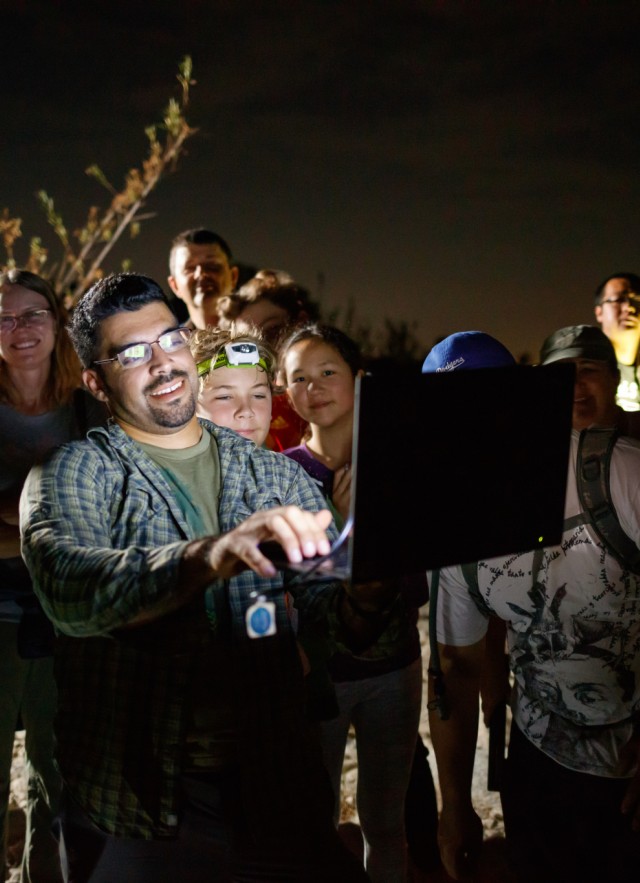BE ADVISED: On Saturday, February 21, the Los Angeles Memorial Coliseum will host the LAFC vs. Inter Miami soccer match. Kickoff is at 6:30 pm. This event will impact traffic, parking, and wayfinding in the area due to street closures. Paid parking for Prehistoric Fight Nights will be offered in the NHM Car Park at Exposition Blvd and Bill Robertson Ln. Please consider riding the Metro E (Expo) Line and exiting at USC/Expo station.
BE ADVISED: The Natural History Museum is not participating in SoCal Museums Free-for-All on Sunday, February 22.
Be a Bat Detector
We are inviting residents in neighborhoods around L.A. County to track bat activities for the first large-scale study of how these creatures use urban and suburban habitats.

The Natural History Museum of Los Angeles County is enlisting residents in neighborhoods around L.A. County to track bat activities for the first large-scale study of how these creatures use urban and suburban habitats. The Backyard Bat Survey was recently awarded a grant from the Disney Conservation Fund, which supports local efforts around the world aimed at saving wildlife, inspiring action, and protecting the planet.
Led by NHM Community Science Manager and wildlife biologist Miguel Ordeñana, the project offers a chance to inspire city dwellers, including those in underserved communities, to become stewards of the environments where they live.
It’s also a way for our Urban Nature Research Center to collect unprecedented biodiversity data needed to inform policy and land management decisions for the benefit of conservation.
WE’RE RECORDING
In NHM’s Nature Gardens, Ordeñana has listened out for the flying mammals, too. For a time, he installed a black box — an acoustic bat detector — atop a light pole near the pond. The device was equipped with a special microphone that captured the nocturnal mammal’s ultrasonic echolocations (that are impossible for humans to hear). Using special software that analyzes recordings, Ordeñana discovered that several species had been swooping by for an insect snack.
Ordeñana shares his findings from nocturnal wildlife monitoring during a public program that involved a camera trap and live bat acoustic monitoring in Oro Vista Park.
“Learning what we discovered together as a group was a heart-pumping, exciting experience,” Ordeñana says.